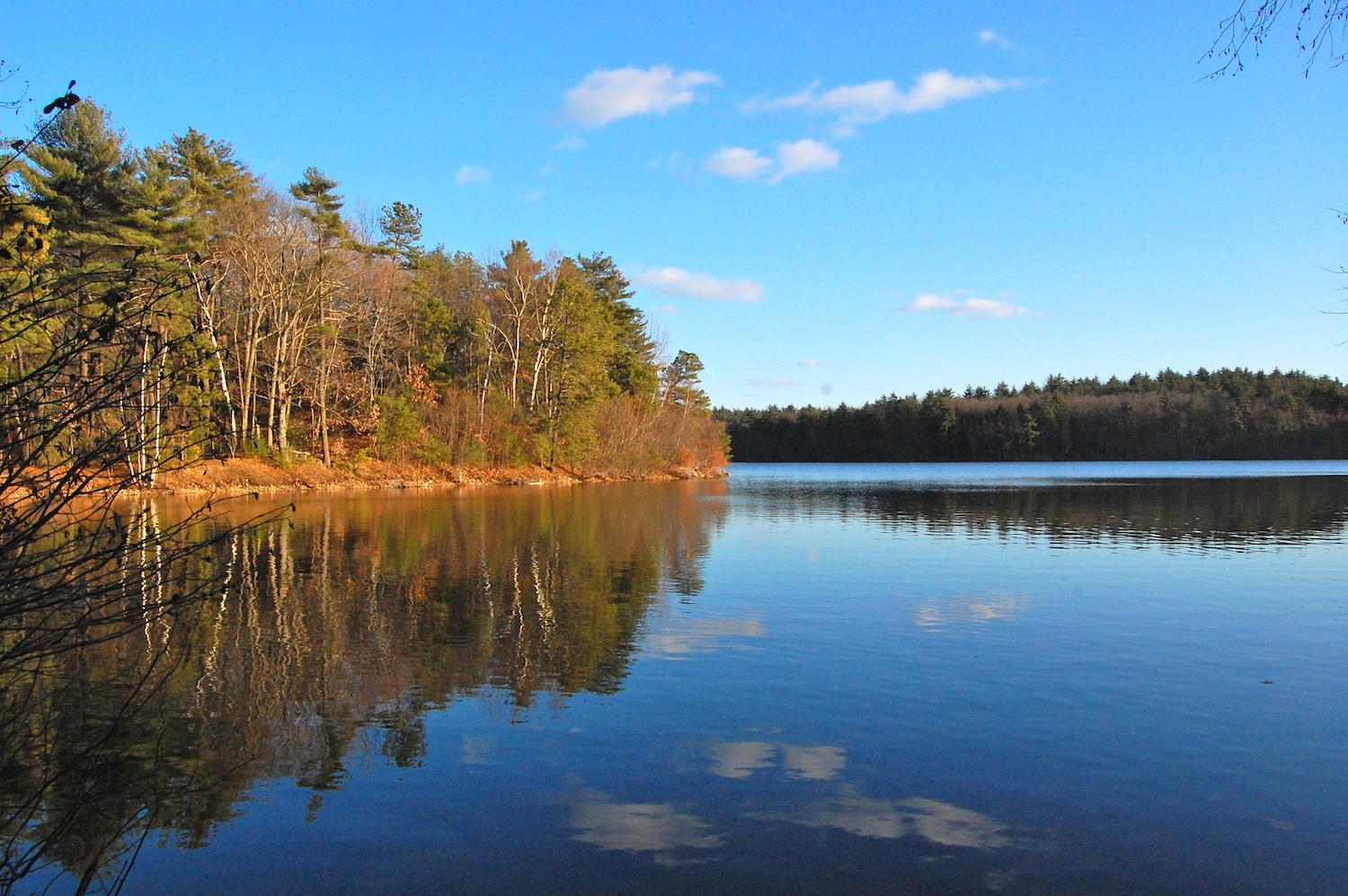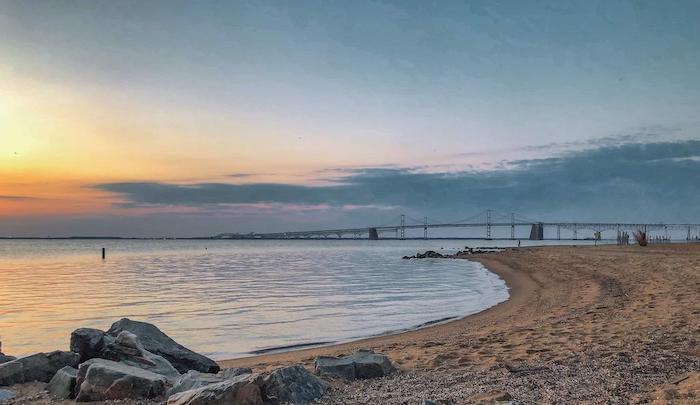
Walden Pond/By ptwo from Allahabad, India - 985Uploaded by Ekabhishek, CC BY 2.0, https://commons.wikimedia.org/w/index.php?curid=16428533
Cultural And Historical Benefits Of Expanding The National Park System
By Kurt Repanshek
Retiring at day's end to a small, hand-built cabin on the lakeshore, Henry David Thoreau spent two years searching nature for lessons it could teach him.
"I wished to live deliberately, to front only the essential facts of life, and see if I could not learn what it had to teach, and not, when I came to die, discover that I had not lived," he would explain in Walden; Or Life In The Woods.
Something of a treatise on transcendentalism, Walden evolved into a classic of American literature. Through its essays, Thoreau reflects on his toils in nurturing a field of beans, of the birds and even ants in the woods about him, and the sublime joys of solitary life.
Those experiences, and the setting where Thoreau deeply pondered them, together are something of a touchstone of American individualism, "that if one advances confidently in the direction of his dreams, and endeavors to live the life which he has imagined, he will meet with a success unexpected in common hours," as Thoreau put it.
And so, when looking about the country for places where the National Park System could expand, one must wonder why Walden Pond, while part of a Massachusetts state park, is not part of the National Park System?
"Walden Woods, why is that not a national park?," asks Michael Kellett. "I live nearby, I drive by there, I see people obviously from all over the world who are not American. They're obviously not dressed like Americans, some of them look Asian and so forth. In Japan, Henry David Thoreau is a huge thing and a lot of people come from Japan to visit Walden Pond. And that's actually an important natural area because it's near Boston. It's also important for recreation, but it's got all kinds of history, not just Henry David Thoreau.
"For example, Brister's Hill is the name of a hill within Walden Woods. It's named after Brister Freeman, a freed slave who basically just set up shop and set up a farm. He couldn't really own land at the time. People knew it, and they just let him do his thing. And Thoreau writes about him in Walden, he really admired him. And there also were a number of other freed slave homes in Walden Woods, for example. There's Native American history in the area," added Kellett, co-founder and executive director of the New England-based conservation group, Restore the North Woods.
Telling America's Story
There are dozens of natural areas across the United States that could be added to the National Park System, both to protect unique ecosystems as well as biodiversity, and there also are many cultural and historic sites that tell chapters of the country's history.

Establishing a Chesapeake Bay National Recreation Area would bring natural, cultural, and historical sites into the National Park System/Michael Weiss
"That's the great part about the Park Service, you get the blend of natural resource protection and cultural resource protection, and they're blended together in protecting the sites," said Kristen Brengel, the National Park Conservation Association's senior vice president for government affairs. "Even the natural places have great historical and cultural significance."
The possibilities for interpreting and protecting U.S. history and culture multiply when you leave the current park system.
"There are so many different cultures and constituencies around the country that are not represented very well in the park system right now," Brengel said. "And we should be seeking out sites. Our office is located in Chinatown in Washington, D.C. We don't really have many sites that tell the cultural experience of a Chinese-American. So for starters, I think there are so many different cultural parts of our country that are just completely untold at this point. Even women's history sites. There aren't very many that tell the story of women in our democracy, women who have done outstanding, nationally significant things in this country."
Identifying worthy sites is not difficult. Just last month legislation was introduced to create a Chesapeake National Recreation Area, a unit that if added to the National Park System would bind together robust natural and cultural history.
The roots of U.S. history are deep in the Chesapeake area. America's earliest colonial-era cities were situated at or above the fall line of rivers that end in the bay, including Richmond, Virginia, on the James River; Fredericksburg, Virginia, on the Rappahannock; Washington, D.C., on the Potomac; and Harrisburg, Pennsylvania, on the Susquehanna. The 18th century plantation once owned by Francis Lightfoot Lee, a signer of the Declaration of Independence, is here, too.
"We ought to be thinking big," Kellett believes. "The National Trust for Historic Preservation has their 11 Most Endangered places list. We're losing these areas, a lot of these important places that could be protected and wouldn't cost that much in the bigger scheme of things. It wouldn't be that expensive to save these places. We ought to be doing that, just like natural areas."
Champions Needed
Some potential additions are nestled within natural areas that could, or should, also be added to the park system. Within the Mobile-Tensaw region of Alabama, for example, are sites of long-lost Indigenous cultures and remnants of Africatown, a community established by descendants of the last enslaved peoples brought to America, aboard the Clotida. There are countless sites across the country tied to Indigenous cultures, said Elaine Leslie, who was the National Park Service's chief of biological resources before retiring.

Stewart Udall, pictured here in 1964 with Lady Bird Johnson in Grand Teton National Park, championed National Park System expansion/LBJ Library
Look out across the country and "I think there are stories to be told," she said. "Another urgent thing is there are folks who have these stories in their heads and their families, and if we don't get out there and get that information we're going to lose that information as well. I think there are lots of gaps and I think we discover new gaps all the time."
Back at NPCA, Brengel said another good place to look for candidates would be the National Historic Landmarks program.
"That would be a great place to start in terms of looking at places that have already been determined as nationally significant to a degree, and then build out the list from there," she said. "But part of this is going to require talented people who are great at historical research and cultural resource and have them sort out places that make the most sense to be added to the park system.
"There's also science, music, art that are missing from the park system," Brengel added. "And so doing a full-range study, to dig deeper into what can be protected right now, and what isn't lost yet, would be an amazing thing to have the Park Service do. But it would be hugely time consuming and require quite a bit of expertise to do."
Driving this endeavor will require champions, as former Interior Secretary Stewart Udall was when he pushed Presidents Kennedy and Johnson to greatly expand the park system.
"Udall had the ear of the president. ... Do we have that kind of presence today, or are we walking on eggshells if you're the secretary of Interior or Agriculture?," said Leslie, who also sees a need for park system champions in Congress.
"They fought hard for a lot of what we have today," she said, looking back to the 1960s when the park system came to embrace Canyonlands National Park, North Cascades National Park, Redwoods National and State Parks, Appalachian National Scenic Trail, national seashores, national lakeshores, and nearly two dozen national historic sites. "I guess I'd just like to see us as a nation fighting as hard today for these protected places."

